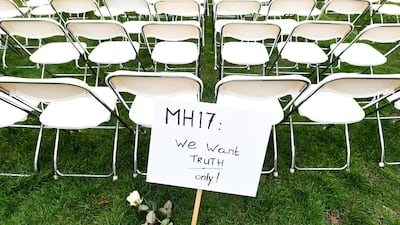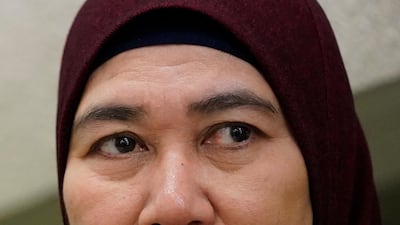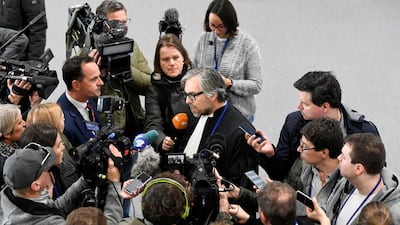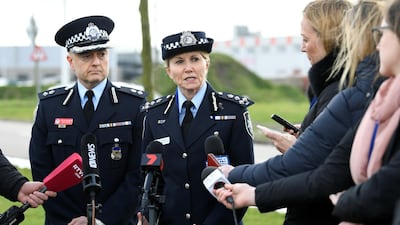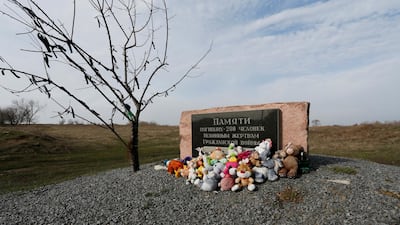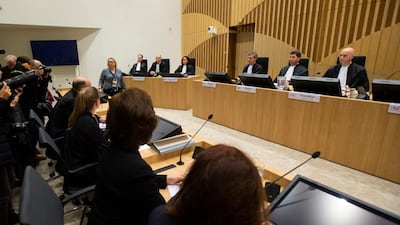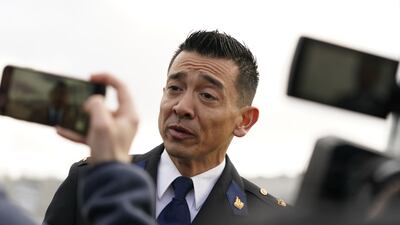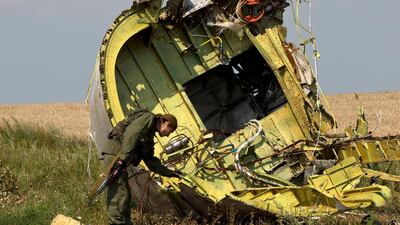The opening of the trial of three Russians and one Ukrainian accused of being behind the shooting down of Malaysian Airlines Flight 17, or MH17, on Monday was an important event for many. The citizens of 10 nations were on board when it plummeted to the ground, leaving no survivors, on July 14 2014.
All eyes will be on the Netherlands, where the trial is taking place and which lost 193 of its nationals. It will be followed especially closely in Malaysia – the flight's intended destination. The country suffered the loss of 43 on board, one of whom was the step-grandmother of the country’s then-prime minister, Najib Razak.
For Malaysians it was doubly tragic, as it came only a few months after the disappearance of MH370, a Beijing-bound flight that mysteriously diverted from its course and is believed to have crash-landed in the southern Indian Ocean. We may never learn what happened to MH370; what Malaysians will want from the current trial is clarity over MH17 and for responsibility to be assigned – whatever the verdict.
This raises the question, though, of whether we are moving towards a world of accountability or of impunity. The signs are distinctly mixed. Take Myanmar's treatment of its Rohingya minority. This predominantly Muslim ethnic group has been described by the UN Secretary-General Antonio Guterres as "one of, if not the, most discriminated-against people in the world", and for good reason. They have been persecuted for decades. The Rohingya were deprived of their Myanmar citizenship as far back as 1982, but their plight mostly failed to catch the world's attention until a 2017 crackdown by the country's military, which led hundreds of thousands to flee over the border with Bangladesh.
Condemnation of what has been widely characterised as a campaign of ethnic cleansing, accompanied by horrific stories of sexual assault and murder, has been near universal. In January, the International Court of Justice – the UN’s top judicial body – ordered Myanmar to take “all measures within its power” to prevent genocidal acts against the Rohingya and to issue regular reports on its enforcement of that ruling.
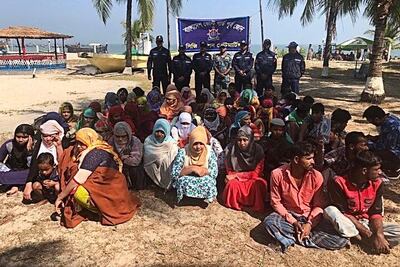
But what are the real consequences for Aung San Suu Kyi, Myanmar’s civilian leader, and the armed forces accused of perpetrating these atrocities? True, Ms Suu Kyi’s transformation from human rights hero to a figure now reviled in liberal circles is complete. But perhaps she cares less about that than all of the universities rescinding her honorary degrees.
For after her recalcitrant appearance in front of the ICJ, where she flat out denied allegations of genocide, described what had been going on as “an internal armed conflict” and blamed “the displacement of thousands of civilians” on those seeking autonomy for the area of Myanmar the Rohingya call home, Ms Suu Kyi is, politically, stronger than ever. Her stance, repulsive as one may find it, is very popular in Myanmar, and will serve her and her National League for Democracy party very well in elections due to be held later this year.
The US has applied sanctions to a few top military figures in Myanmar, and a few mid-level officers may end up as the fall guys when the country’s own investigations – which nobody believes will be fair – are completed. But strong words on the global stage have amounted to little in practice. Essentially Myanmar has gotten away – so far – with what many consider to be crimes against humanity.
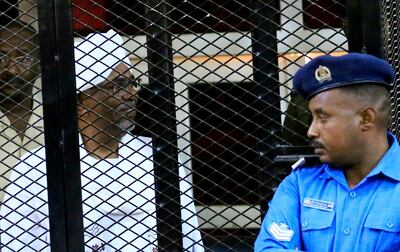
In neighbouring Cambodia, an effort was made to hold to account the Khmer Rouge regime of the 1970s, which was responsible for the deaths of 1.7 million of its own countrymen. A UN-backed tribunal was established in 2003, and technically still exists, but after all those years and at a cost of nearly $300 million, it has still only managed to convict three men. The government of Hun Sen, himself a former Khmer Rouge commander, has successfully managed to stall any further trials in the interest of averting the civil strife that too much unearthing of the past could lead to, in his view.
Some other recent instances of attempts at reckoning with history are more positive. The Sudanese authorities agreed last month to hand over their former president, Omar Al Bashir, to the International Criminal Court, which has been after him since 2009 on charges of genocide, war crimes and crimes against humanity. Reaching far further back, an American court has just ordered a 94-year-old who has lived in the US since 1959 to be deported to Germany, on the grounds that he was a guard at a Nazi concentration camp in the Second World War.
In general, however, there is little consistency. The ICC, based in The Hague, is supposed to be one of the main intergovernmental bodies that can prosecute the worst crimes, such as crimes against humanity. But only 123 countries are member states, while the list of non-members includes three countries on the UN Security Council: Russia, China and the US.
It is possible to argue, from the principle of state sovereignty and non-interference in other states’ internal affairs, that it should be up to individual countries how they deal with the darker aspects of their own histories. The reluctance to serve justice on the former dictators of Indonesia and the Philippines – General Suharto and Ferdinand Marcos, respectively – while they were still alive can be seen in that context (although human rights campaigners in both countries were furious about it). On the brighter side, the Truth and Reconciliation Commission in South Africa is seen as the best example of how a country can move on from a troubled past. Something similar may be set up to address unresolved grievances and wrongs in Northern Ireland.
But on that basis, what happens to a persecuted minority, such as the Rohingya in Myanmar, would be no one else’s business – a state of affairs that surely cannot be regarded as tolerable.
The only answer is for intergovernmental bodies to be strengthened and for all, greater and lesser powers, to agree to submit to their arbitration. There is little chance of that happening imminently. So for now we live in a world where accountability and impunity co-exist uncomfortably. Both those who lost loved ones on MH17 and the Rohingya must hope that we move, slowly if need be, towards the former.
Sholto Byrnes is a commentator and consultant in Kuala Lumpur and a corresponding fellow of the Erasmus Forum
